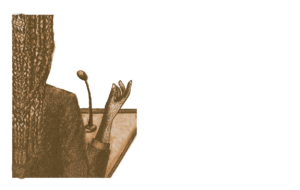
In response to a piece that appeared in the Rochester Beacon newspaper.
To echo what Howard said, I am finding that too many white folks are in fact relying on all white spaces for all their racial learning. A slew of studies show that 75% of white folks in the US report only having regular contact with other white folks. All they can do then when talking about race is echo back their own white frames of reference to each other. In my black experience, that’s exactly what they do. This echoing appears as “doing this work” and substitutes for real activism.
Marketers pay big bucks to a select group of tweens and teens who report back to them what is trending and what is on the twilight to becoming “so yesterday!” among their peers. If you want to know what teens want, asking someone who studies teens will always leave you two or three steps behind interacting with actual teens. And with billion dollar product launches on the line, the question is never “I think that…” or “don’t you think that…?” It is always “what do you think?” followed by a sincere, hungry silence that is more than just an obvious invitation to echo back to the inquirer what a clever marketer he is.
Yes, black folks get frustrated and tired of being “the go to” guy all the time. That’s mainly because white people ask us the same questions over and over and over, “wearyingly predictable,” as you said. Moreover, they tend to not really be questions about understanding black life. They’re white questions about how to fit something they don’t understand into a white frame (“don’t you think that…?” or “I don’t see why…”). 72% are simply one of a myriad of rewordings of “I’m one of the good ones, right?” I’m going to lose a lot of points for saying this but here goes. The popularity of SURJ and other analogous groups has to do with the fact that it’s a space where white people can talk about racism and still have their own whiteness be the center of their discourse. Months ago I attended the same SURJ workshop you mention on combating racist remarks. I kept waiting for when the instruction was actually going to get around to defending black people. Instead I was disappointed to find it all about how to suffer fools and keep your cool while doing it.
If I want to find out what a quinceañera is about I accept an invitation to one. The learning is in the preparation leading up to it (what’s an unsuitable gift to bring and why, appropriate dress, the proper greeting,…) and the actual experience of being there. The same with a bar mitzvah or a Hindu wedding. I wouldn’t go to these events asking a million questions expecting people to divert attention to the fact that I’m here. I wouldn’t talk everyone’s ear off bragging about and quoting all the books and blog posts I’ve read (“I saw Schindler’s List and I cried through the whole thing…”). I would go, observe, do what I see others doing, and humbly shut the flip up! Offer to help serve punch, maybe. My white friends, I’m afraid you can’t escape us black folks. The only way you’re ever going to invest real skin in the game is to bring yourselves to black spaces. Sorry guys. That’s just the way it is.
In a lot of the workshops I’m leading, lately I continuously hear whites say they’re afraid of being among black people and saying the wrong thing and I’m calling it out for the vestige of white supremacy that it really is–“J’Accuse!” There is a simple mathematical remedy for this fearful situation, stop talking so damn much.
Buddhist nun Pema Chodron says “we work on ourselves in order to help others, but also we help others in order to work on ourselves.” White people are used to seeing themselves as the smartest one in the room, they come expecting to be heralded as the leader that has finally arrived. Bring yourselves to us with a true desire to learn something you don’t [think you already] know, and accept the authority of black opinions and black points of view on what racial equality needs to look like, the best way to get there, and what supporting role you could play that would indeed be most helpful.
And once again I’ve written an entire essay answering someone else’s post while neglecting my own blog so I’m going to cut-n-paste, kill two birds with one stone, and go to bed.

